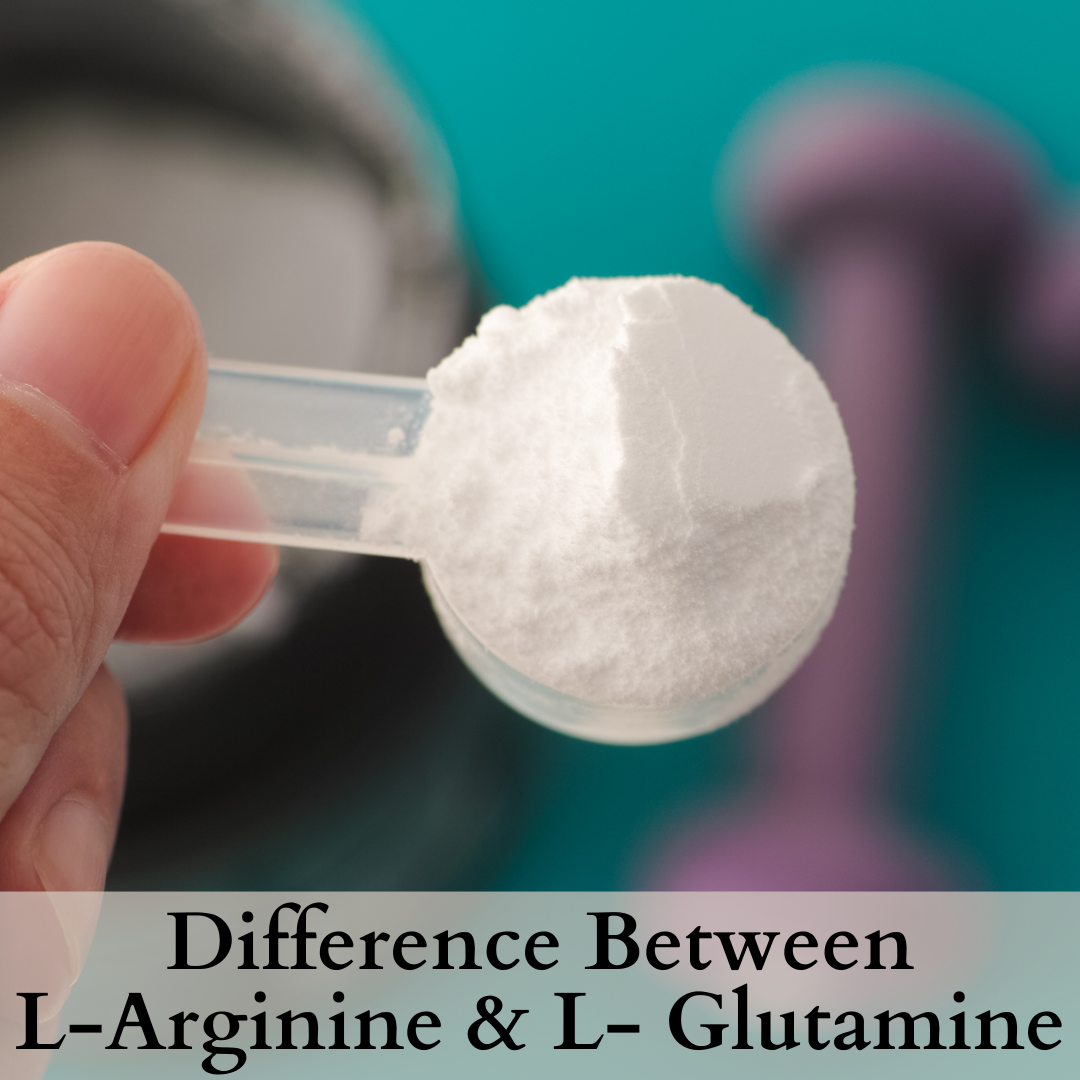Amino acids are key participants in the field of supplements and nutritional research, supporting a variety of body processes. L-arginine and L-glutamine are the two most popular supplements among fitness enthusiasts, each bringing special advantages. Even though these amino acids sound identical, they follow different routes in the body. Let's examine the differences between L-arginine and L-glutamine and the numerous benefits they both offer.
Advantages of L-Arginine
As a semi-essential amino acid, L-arginine is worth mentioning because the body can't synthesize it internally in some situations, so you have to get it from your diet or supplements. This amino acid takes on the role of a precursor of nitric oxide, coordinating the dilatation of blood vessels to promote improved blood flow and cardiovascular health.
Advantages of L-Arginine:
Nitric Oxide Excellency: L-arginine is involved in the creation of nitric oxide, which facilitates vasodilation to increase blood flow and promotes better circulation.
Cardiovascular Fortification: Improved cardiac function and lower blood pressure are two indicators that increased blood flow may lead to better cardiovascular health.
Exercise Amplification: Due to increased muscle blood perfusion, fitness enthusiasts use L-arginine supplements to enhance their exercise performance.
To get the most out of L-arginine and reduce any potential negative effects, it is important for anyone considering adding L-arginine to their routine to know how much to take.
Advantages of L-Glutamine:
On the other hand, L-glutamine becomes the body's most important amino acid and is involved in many different physiological functions. This amino acid, which is needed for the production of proteins, plays a pivotal role in strengthening the integrity of the intestinal lining. Additionally, L-glutamine leaves its mark on muscle recovery and immune system stimulation.
Important Points to Remember About L-Glutamine: Muscle Revitalization As an expert in muscle recovery, L-glutamine relieves discomfort in the muscles after strenuous exercise and speeds up the body's overall healing process.
Gut Garrison: Well known for strengthening the digestive base, L-glutamine plays a critical role in maintaining the integrity of the gastrointestinal tract, especially the intestinal mucosa.
Immune Sentinel: L-glutamine is a well-known immune system bolstering agent that is especially helpful for people who engage in rigorous exercise routines.
While reducing the possibility of negative effects, figuring out the right dosage for L-glutamine can assist maximize these advantages.
Differentiating Between L-arginine and L-glutamine: Although their paths differ in defining their principal functions, they converge in supporting overall health. L-arginine revolves around enhancing cardiovascular health and blood flow, attracting people who want stronger circulation and maybe increased workout efficiency.
On the other hand, L-glutamine covers the bases for immune defense, gastrointestinal toughness, and muscle regeneration, luring athletes who are seeking to reach the destinations of immune defense, muscular recovery, and digestive vitality.
L-Glutamine and L-Arginine Stack for Athletes and Bodybuilders
It can be very beneficial to stack L-arginine and L-glutamine for people who want to reach their maximum level of fitness. This blend combines the immune-boosting and muscle-recovery properties of L-glutamine with the vasodilation and cardiovascular advantages of L-arginine to produce a synergistic effect that is advantageous to both bodybuilders and athletes.
In Conclusion:
All things considered, L-arginine and L-glutamine are two different amino acids that leave different traces on the canvas of human physiology. As L-arginine promotes cardiovascular health and vascular vibrancy, L-glutamine rises as a sign of immune system strength, gut resiliency, and muscular recuperation. Including these amino acids in your supplement regimen should support your individual goals for health and fitness. It is wise to first speak with a healthcare provider before making any major dietary or supplemental changes. Equipped with a sophisticated understanding of these amino acids, people can steer toward well-informed decisions that are in line with their specific needs.

